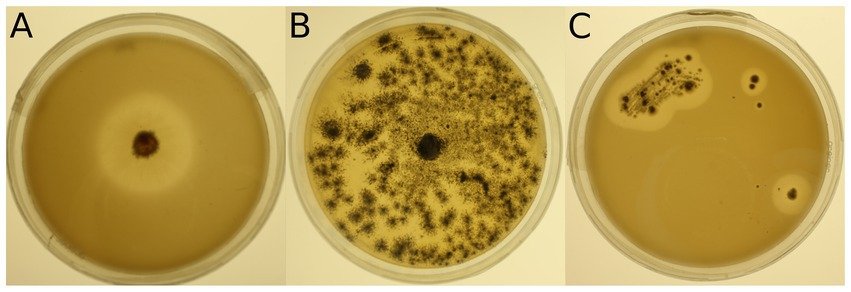Scientists say they have discovered a variety of microbes that are capable of something potentially game-changing related to the breakdown of plastic, and in an unlikely place: on the snowy slopes of the European Alps.
According to scientists with the Swiss Federal Institute WSL, the microbes, which are found in the soils of alpine forests and polar regions, can consume and break down biodegradable plastic even at relatively low temperatures of around 59°F (15°C), allowing for potential new applications in degrading certain kinds of plastics that could improve recycling efforts, as well as environmentally conscious plastic production.
In studies of 19 different bacteria strains, as well as 15 varieties of fungi, several were found to possess this unique capability of low-temperature plastic degradation.
In the past, several other microorganisms have been discovered that can achieve similar results, although they generally only work at much higher temperatures of 86°F or higher. This imposes limitations on the use of such microbial plastic degradation in industrial applications and makes the process more expensive.
The Swiss team involved in the study decided to look for organisms capable of breaking down plastics at higher altitudes in their country’s polar regions amidst the Alps, where they said they discovered “novel microbial taxa obtained from the ‘plastisphere’ of alpine and arctic soils,” which Dr. Joel Rüthi, lead author of a new study detailing the findings, says “could help to reduce the costs and environmental burden of an enzymatic recycling process for plastic.”
The researchers knew to look for the microbes in this environment since their search comprised an area where free-lying plastic litter had been intentionally buried in Switzerland, as well as Greenland and other locales. The microbes were identified using special molecular techniques involving isolated samples of soil collected on the summit of the Muot da Barba Peider, as well as the valley Val Lavirun.


Testing each strain to assess their capabilities in the breakdown of both biodegradable and non-biodegradable commercial products, the strains were able to digest the biodegradable material at cooler temperatures.
“It was very surprising to us that we found that a large fraction of the tested strains were able to degrade at least one of the tested plastics,” Rüthi said in a statement.
One reason why this surprised Rüthi and the research team involves the perplexing question of how these microbe strains developed the ability to digest plastics in the first place. Since plastics only came into widespread use in the mid-20th century, it seems unlikely that the microbes would have evolved this capability over long periods as a result of natural selection.
One possibility is that the microbes produce enzymes called cutinases that can break down the cutin present in the walls of plant cells, which are similar to materials found in biodegradable plastics.
Although the recent experiments show that these novel microbes can perform the degradation of plastics at temperatures as low as 59°F, additional studies may be required to gauge the optimal temperatures at which they can operate, thereby potentially allowing for novel recycling applications that are both more efficient and cost-effective.
Rüthi and the team’s paper, “Discovery of plastic-degrading microbial strains isolated from the alpine and Arctic terrestrial plastisphere,” appeared in Frontiers in Microbiology on May 10, 2023.

